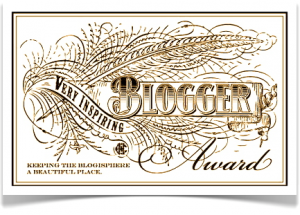Although I’ve been dealing with anxiety for almost three decades now, I just recently noticed how much more debilitating “waking-up anxiety” is compared to when it infiltrates my brain at other times of day and night. This morning anxiety business belongs in a whole other stratosphere. Looking back, I realize that my worst-of-the-worst fears have happened upon awakening. And those fears are that much harder to harness, that much harder not to believe.
I began to wonder if it’s because my brain has been busy ruminating all night, and, thus, further unconsciously reinforcing a sense of all-so convincing reasons why my fears would come to fruition. I’ve also remembered some dreams that actually replayed — and expanded — upon whatever I had been worried about before falling asleep.
I was curious, then, if other people suffered from morning anxiety as well. When I researched it, I found a number of online articles covering this very topic. Common morning anxiety symptoms include waking up feeling on-edge, irritable, and fatigued, as well as having tight muscles, a racing heart, and chest constriction.
Causes:
But what causes morning anxiety? Some possible explanations may be due to physiological responses. Studies have shown that cortisol (otherwise known as the stress hormone) is often at its highest during the first hour of waking up. Also, blood sugar levels drop overnight, leading to low blood sugar levels in the morning. And you guessed it: Low blood sugar can trigger anxiety.
Research also suggests a link between diet and anxiety. A diet that is too high in simple carbohydrates and sugars (including alcohol) may cause further glucose spikes and dips, which may increase anxious feelings. Caffeine is also a powerful stimulant that can trigger anxiety in some people, especially if one gulps down one too many cups.
Although these physiological reasons make sense, I believe that the waking-up what-ifs are also due to psychological stressors (like already dealing with general and/or acute anxiety). Otherwise, everyone would wake up with racing hearts, tensed muscles, and dread-filled thoughts. Physiological factors combined with stressful thoughts, then, may very well create a dome of doom that clouds the waking brain with morning anxiety.
Cures:
So, how to curb the waking-up what ifs? As most people with anxiety will tell you, trying to simply push anxious thoughts away often makes them that much more poignant — especially if one has spent the whole night ruminating on them. Yet, there are still viable solutions that can curtail morning anxiety, and, with practice, may eventually stop it in its tracks.
One of the first ways to combat it is to acknowledge how high cortisol levels, low blood sugar, and diet can increase anxious feelings. Engaging in deep breathing exercises as soon as one wakes can lower stress hormones (and don’t forget that regular exercise during the day can decrease overall stress as well).
Then, enjoying a balanced breakfast as soon as possible may very well help alleviate low blood sugar (making sure to omit or limit coffee if it makes you anxious). An overall healthy diet during the day, which includes protein, omega-3 fats, whole grains, and fruits and vegetables can also even out those glucose spikes and dips, and, thus, also even out those on-the-edge feelings. It’s interesting to note, too, that according to Medical News Today, specific foods such as dark chocolate (yay!), bananas, pears, black and green tea, and probiotics in such foods as yogurt can further lower cortisol levels.
Limiting stress before going to bed may help as well. If you have to deal with a difficult person or situation, do it during the day if possible — and not in the evening. In other words, give your brain time to process the fallout of stressful feelings before your head hits the pillow. If you’re worried about something, also give yourself time during the day to either discuss it with a friend, journal about it, or even meditate on it during a walk or commute.
If you don’t come up with a solution, tell yourself that you’ll make time the next day to mull over it again—but not before going to bed. It’s also helpful to turn off the news, shut down your cell, and read a novel (which will help distract the brain from any stressful thoughts still tromping through it) at least an hour before hitting the sack.
When you do wake up, sometimes it really is best to jump out of bed (even if you’re exhausted from a stressful night of fitful sleep and even more fitful thoughts) and seize the day. Turn on your favorite music, listen to an uplifting podcast, do a crossword puzzle as you eat breakfast and figure out how to best maneuver your upcoming schedule. Yes, sometimes distraction is healthy, especially when it can deflate both those go-to-bed worries and early morning what ifs.
All in all, know that if you suffer from morning anxiety, you’re not alone and there are ways to combat both the physiological and psychological factors that contribute to it. From now on, I’m planning on forcing myself out of bed, cranking up the radio, enjoying a nutritious breakfast, and exercising as soon as possible when I wake up with those dreadful what-ifs!

